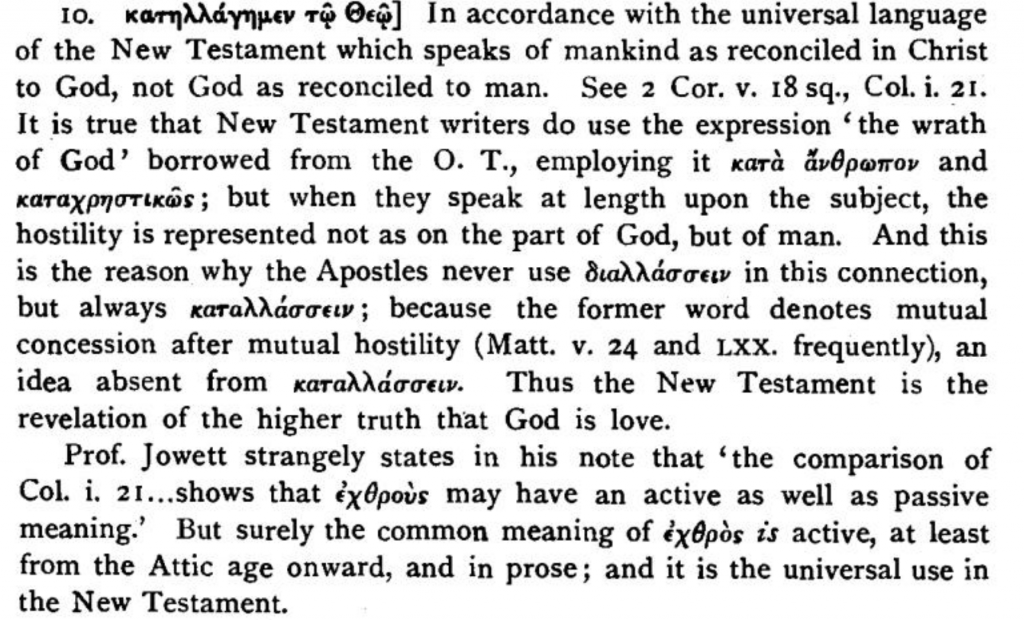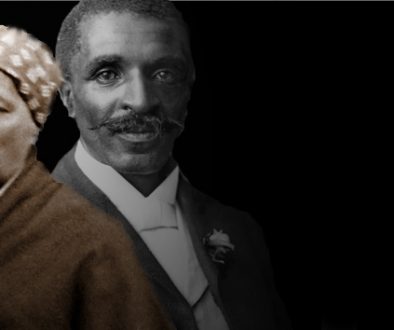Biblical Reconciliation (A Word Study)
It always bothers me when someone uses Mathew 18 as the handbook for conflict resolution in the church. Sure, it contains some important conflict resolution principles, but the main point of the passage deals with sin that could result in someone being kicked out of the church. Here’s my issue, one person’s sin is another person’s bruised ego. I wonder how many church splits have occurred over disagreements that were misinterpreted as sin after using Matthew 18 to guide them.
So, how should we handle difficult and tense disagreements in the church?
For me the answer to this question is found in one’s understanding of the biblical view of Reconciliation. Many of the concepts we take for granted today, especially in the finance and economic world are inspired by the Greek words for Reconciliation used in the New Testament. This study examines four of them.
1. katallasso (καταλλάσσω) verb
“Properly denotes “to change, exchange” (especially of money); hence, of persons, “to change from enmity to friendship, to reconcile.” With regard to the relationship between God and man, the use of this and connected words shows that primarily “reconciliation” is what God accomplishes, exercising His grace towards sinful man on the ground of the death of Christ in propitiatory sacrifice under the judgment due to sin (Vines, 2003)”2. apokatallasso (ἀποκαταλλάσσω) verb
“To reconcile completely” (apo, from, and No. 1), a stronger form of No. 1, “to change from one condition to another,” so as to remove all enmity and leave no impediment to unity and peace (Vines, 2003).”3. katallage (καταλλαγή) noun
“Akin to A, No. 1, primarily “an exchange,” denotes “reconciliation,” a change on the part of one party, induced by an action on the part of another; in the NT, the “reconciliation” of men to God by His grace and love in Christ (Vines, 2003)”
There are many great studies on these words, but today I want add the Greek verb diallassō (διαλλάσσω) to the discussion. This word appears to only be used once in Matthew 5:24 to quote Jesus, when he tells his disciples to “go and be reconciled to your brother first…”
When I examine the uses of these words in comparison with the word diallassō in their biblical contexts (i.e. Rom 5:10, Rom 5:11, Rom 11:15, 1Co 7:11, 2Co 5:18, 2Co 5:18, 2Co 5:19, 2Co 5:20, Eph 2:16, Col 1:21, I observed:
Katallasso, apokatallasso and katallage are all very much focused on man’s reconciliation to God. In this excerpt from his book Notes on the Epistles of Paul, J. B. Lightfoot (1904) writes,

Building on Lightfoot’s (1904) observations of the Bible’s “Universal Language”, it makes sense to unpack the Apostle’s use of katallage (καταλλαγή) and it’s verb form variations in terms of their common economic applications of the day. Thus, one might say that God is the banker and we are all borrowers, and we are reconciled to the banker. Furthermore, God is the only banker, all is creation (Us) are borrowers.
In the spirit of Eph 2:16 where we find the verb apokatallasso, According to Vine’s, “’to reconcile completely’ (apo, from, and katallasso), a stronger form of katallasso, “to change from one condition to another,” so as to remove all enmity and leave no impediment to unity and peace. With this definition in mind, it would be ridiculous to think we, as borrowers, would have any credibility introducing other indebted souls to the Banker who could redeem and absorb their debt if we did not embody and demonstrate the Banker’s spirit of reconciliation. Especially since He completely transformed us from deeply indebted borrowers to family members.
Finally as I place a modern world view in this ancient concept, I found that the noun katallage translates directly to payment/transaction and the verb katallasso translates directly to the English word catalyst. Since kata means (down or completely) llage means change and llasso means “I change,” we can surmise that katalasso can literally be interpreted in context as “I [God] have paid your debt and completely changed you.”
Additionally, and again building on Lightfoot’s observations, I think it’s important to highlight that God is the catalyst of all spiritual katalasso. He invites us to play an important, but supportive role in His redemption plan.
Therefore, our role as ambassadors of reconciliation can be summarized as catalysts of God’s catalysis, or in less esoteric terms, catalysts of God’s transformation in others.
Now enter diallassō. Why is it important to include this perspective?
- This verb give us a practical example of what it looks like to be a “Catalyst of God’s Transformation”.
- The direct translation of diallassō is “to exchange.” There is no banker/borrower relationship here, just two former borrowers transformed into family members.
- The example in Matthew 5 appears to be between two believers or spiritually reconciled, but I believe it is fitting for the Godly Catalyst to behave this way toward everyone; lest we forget we were once borrowers ourselves and recipients of God’s apokatallasso. Plus, who knows, perhaps the borrowers we encounter may be completely reconciled as well.
- As I mentioned above, the spiritually reconciled (katallasso) should always have a spirit of (diallassō) with others even if they aren’t believers. At the very least, if they don’t come to Christ, it may stop them from becoming your “banker.” (Matt 5:25).
- The world has its transaction way of doing life, but believers are expected to live differently. I know that I can’t directly control the outcome of others. Such actions would make me a banker and we’ve already established there’s only one, but in the spirit of Romans 12, (a beginner’s guide to diallassō behavior for the recipient of God’s spiritual katallasso) , “If possible, so far as it depends on you, be at peace with all men,” (Rom 12:18 NASB). In reality, life is complicated. We are, after all, just jars of clay, (2 Cor 4:7), but with such truth in mind, anyone who comes into contact with me should expect that I have a katallasso mission and a diallassō heart.
- This is especially true when a believer comes to me looking for reconciliation. Obviously, there are evil people in our world with evil intentions, and not all reconciliation results in close friendships. Nevertheless, none of the worst that world can offer should stop me, the spiritually transformed, from ever being willing to exchange enmity for peace. My brothers and sisters in Christ should be able to count on such willingness from me and I should be able to count on it from them.
- Like a bowl over our light, our ministry of reconciliation is lost when push for katallasso without a heart for diallassō between our neighbors.
So, What’s the Point
I firmly believe that people often misuse God’s reconciliation as it is carefully described in the Bible, in a similar way they misuse God’s plan for addressing sin in the church as outlined in Matthew 18. We are all so quick to judge and so quick to seek the role of powerful banker in our relationships. We are all so eager to forget we were once in overwhelming eternal debt. Like the “Unmerciful Servant” illustrated in Matthew 18:21-25, we give lip service to God, but strangle others when we feel wronged or threatened by them. We don’t want true reconciliation, we just want things done our way. Some folks reading this might be tempted to twist this study so that they can use it against people they have wronged. They might be tempted to think, “since no person should hold the role of moral banker over another person,” they never have to make things right. If this is you, you’ve missed the point entirely. The standards of the world dictate transactional restitution as a means of justice, but the person with a faintest understanding of the love of God, seeks diallassō even if when it doesn’t make sense according to worldly standards. That person knows God is more than a “banker” and that His power to exact Godly justice comes from his amazing, perfect love. If we could love perfectly like God, then perhaps we might assume a role of power that requires others to be indebted to us. Since, we can’t love perfectly like God, we would do well to to focus on our own brokenness and pray for God to give us hearts willing to exchange enmity for peace. Then we might have even a glimpse and a notion of what it looks and feels like to truly love others the way God loves them… the way He first loved us.
References
Lightfoot, J. B. (1904). Notes on Epistles of St Paul from unpublished commentaries (p. 288). London: Macmillan and.
Vine, W. E. (2003). Vine’s expository dictionary of Old & New Testament words. Nashville, TN: T. Nelson.


